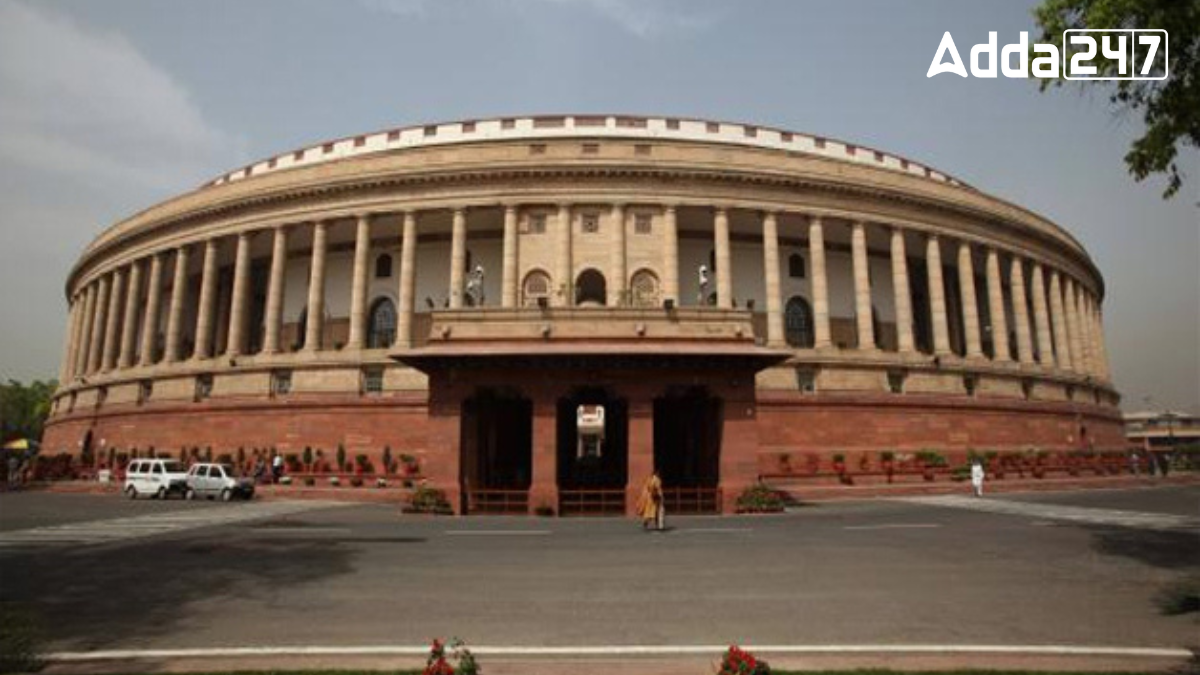Its Overview, History, Objectives and Functions [Current Affairs]
The Indian Parliamentary Group (IPG) plays a significant role in fostering parliamentary connections and facilitating the exchange of ideas among Indian parliamentarians. Established in 1949, the IPG has a rich history and several key objectives and functions that contribute to its effectiveness. This article delves into the IPG’s history, objectives, and functions, providing a comprehensive overview.
Full Form of IPG
The full form of IPG is Indian Parliamentary Group. It is an autonomous body established in 1949 to facilitate parliamentary cooperation and foster relationships among Indian MPs. The IPG supports MPs by organizing conferences, providing publications, and arranging international engagements to enhance their legislative knowledge and global connections.
Historical Background of IPG
The Indian Parliamentary Group (IPG) was established in 1949 as an autonomous body following a motion adopted by the Constituent Assembly on August 16, 1948. This establishment marked the beginning of a structured approach to enhancing parliamentary cooperation in India. Since its inception, membership has been open to all Members of Parliament (MPs), who can become associate members with limited rights. These associate members do not have representation rights at IPU and CPA meetings and do not receive travel benefits provided by some CPA chapters. The IPG’s leadership includes the Speaker of the Lok Sabha as its ex-officio President, the Deputy Speaker of the Lok Sabha and the Deputy Chairman of the Rajya Sabha as ex-officio Vice-presidents, and the Secretary-General of the Lok Sabha as the ex-officio Secretary-General of the group.
Objectives of Indian Parliamentary Group (IPG)
The IPG has several key objectives aimed at enhancing parliamentary functioning and cooperation:
- Building Personal Relationships: One of the primary goals of the IPG is to foster personal relationships among Indian MPs, promoting a collaborative environment.
- Research and Debate Preparation: The group is dedicated to identifying and researching important public matters that are likely to be debated in Parliament, providing MPs with valuable insights.
- Educational Initiatives: The IPG plans and organizes conferences, discussions, and introductory sessions to improve MPs’ knowledge on various topics.
- Publication and Information: The group produces publications to keep members informed about relevant issues, ensuring they are well-prepared for legislative duties.
- Lectures and Seminars: Organizing lectures by MPs and experts on diverse subjects such as political, defence, economic, and social issues is a key objective.
- International Engagement: The IPG arranges visits to other countries, allowing Indian MPs to connect with their counterparts in other parliaments and broaden their international perspectives.
Functions of the IPG
The IPG performs several essential functions to support its objectives:
- International Connections: The IPG plays a crucial role in linking the Indian Parliament with other parliaments globally. This is achieved through goodwill missions and delegations, fostering international parliamentary relations.
- Speaker Events: The group organizes events featuring distinguished speakers and addresses from foreign governments and heads of state, benefiting Indian parliamentarians with global perspectives.
- Travel Support: For MPs traveling abroad, the IPG provides letters of introduction to officials at Commonwealth Parliamentary Association (CPA) branches and national Inter-Parliamentary Union (IPU) groups. Additionally, Indian missions abroad are informed to extend assistance and courtesies to these traveling members.
- Delegation Eligibility: To participate in Indian Parliamentary Delegations, members must have been part of the IPG for at least six months at the time the delegation is formed. This ensures that delegates are well-acquainted with the group’s operations and objectives.
Source: currentaffairs by adda247



![PM Modi launches Odisha’s Flagship Scheme Subhadra [Current Affairs]](https://officialsarkar.in/wp-content/uploads/2024/09/PM-Modi-launches-Odishas-Flagship-Scheme-Subhadra-768x432.jpg)
![Rashtrapati Nilayam to Host Bhartiya Kala Mahotsav in Late September [Current Affairs]](https://officialsarkar.in/wp-content/uploads/2024/09/Rashtrapati-Nilayam-to-Host-Bhartiya-Kala-Mahotsav-in-Late-September-768x432.jpg)
![Where is Jaichand Fort Located in Uttar Pradesh? [Current Affairs]](https://officialsarkar.in/wp-content/uploads/2024/08/Location-of-Jaichand-Fort-768x432.png)
![First Indigenously Developed Pollution Control Vessel Launched in Goa [Current Affairs]](https://officialsarkar.in/wp-content/uploads/2024/08/GU8HExja4AQaaMl-1-768x432.jpg)
![Vinay Goyal Appointed as State Mission Director of NHM [Current Affairs]](https://officialsarkar.in/wp-content/uploads/2024/09/07tv-Vinay-Goyal-1-768x432.jpg)
![Richest Man in the India in August 2024 [Current Affairs]](https://officialsarkar.in/wp-content/uploads/2024/08/Richest-Man-in-India-Gautam-Adani-or-Mukesh-Ambani-768x432.png)